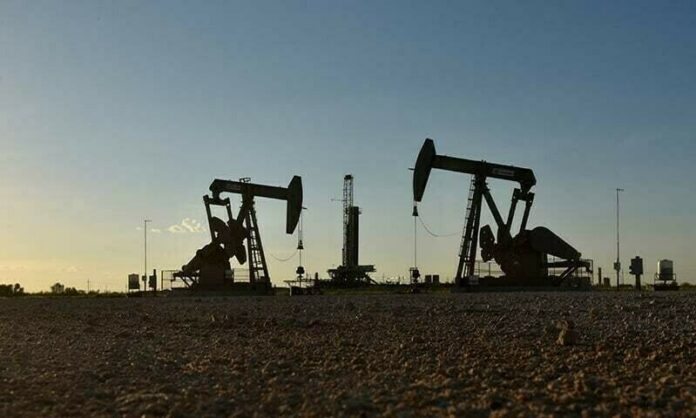Despite renewed interest from major US companies in Pakistan’s energy sector, industry experts have cast doubt on claims of “massive” oil reserves recently highlighted by former US President Donald Trump, citing decades of limited discoveries, foreign exits, and persistent exploration challenges, Bloomberg reported on Wednesday.
Last month, Trump announced that his administration had struck a deal with Pakistan in which Washington would collaborate with Islamabad to develop the country’s oil reserves. “We have just concluded a Deal with the Country of Pakistan, whereby Pakistan and the United States will work together on developing their massive Oil Reserves,” Trump wrote on social media. He added that the lead oil company for the partnership is being selected and speculated that it might eventually sell oil to India.
Following the announcement, the US imposed a 19% reciprocal tariff on a wide range of Pakistani goods, lower than the initially proposed 29%. Meanwhile, US Charge d’Affaires Natalie A. Baker underscored strong American interest in Pakistan’s energy sector during a recent meeting with Federal Minister for Petroleum Ali Pervaiz Malik.
However, Bloomberg’s analysis suggests Pakistan’s oil production has been declining in recent years. “If Pakistan had massive oil reserves, then so many foreign companies wouldn’t have left,” said Moin Raza Khan, former CEO of Pakistan Petroleum Limited (PPL). The report also cited Arif Habib Limited analyst Iqbal Jawaid, who estimates the country’s recoverable oil reserves at roughly 238 million barrels—far below the often-cited 2013 Energy Information Administration estimate of 9.1 billion barrels of shale oil.
Notably, Pakistan’s two most recent significant finds—the Makori East field in 2011 and Nashpa field in 2009—remain the country’s largest producing fields. International energy giants, including Eni Spa and Exxon Mobil, explored offshore areas in the Arabian Sea in 2019 in partnership with OGDCL and others but found no meaningful reserves. Other foreign companies, such as Kuwait Petroleum, TotalEnergies, and Shell, have exited the market over time.
To attract new investment, Pakistan announced a bidding round for 40 offshore blocks, including areas in the Indus Basin, with bids due in October. Any successful discovery would provide relief to the government, given the nation’s declining oil output since peaking in 2018, Bloomberg said, citing International Energy Agency data.
Experts, however, caution that even if reserves exist, unlocking them will be challenging due to technology and infrastructure shortages and persistent security concerns. “If these obstacles were easy to overcome, then we would have seen Pakistan tapping into these reserves instead of relying so heavily on oil imports, and we would have seen more external players getting involved,” said Michael Kugelman, non-resident Senior Fellow at the Asia Pacific Foundation of Canada.




